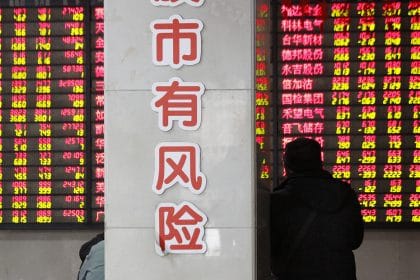The approach to getting business on the Star Market is yielding fruits as the growth of companies making entry therein has skyrocketed in relation to the other stock exchanges.
China’s Shanghai Star Market also known as the country’s experimental stock board has recorded its 200th company with its Initial Public Offering (IPO). According to a CNBC report, the company which debuts on the Shanghai Star Market is Newtouch Software and it ranks as the 200th firm coming on board the July 2019 launched index.
Modeled after the United States NASDAQ exchange, the Shanghai Star Market was established to help innovative companies bypass the rigors associated with the traditional style of going public on established stock exchanges in China such as the Shanghai Stock Exchange, The Shenzhen Stock Exchange as well as the Hong Kong Stock Exchanges.
Besides serving as a support for new and innovative companies to access public financing, the idea behind the experimental stock board is also to attract direct foreign investments. Per the CNBC report, the push by foreign investors to pump liquidity into Chinese markets has been hampered by the associated volatilities of the markets as well as other regulatory concerns.
Nonetheless, foreign investments in the Shanghai Star Market has topped 5.64 billion yuan just at the end of November, up from just 270 million yuan at the end of 2019 when the stock market was newly established and according to the data culled from Pang. As it stands, the total foreign investment accounts for just about 0.17% of the total Star Market’s market capitalization.
Ease of Entry on the Shanghai Star Market via IPO Drives Growth
The Star market is specially designed to allow for ease of entry of the new markets debuting on the exchange. The registration process now follows a new rule that lets companies go public just before they turn a profit as is required of traditional and established exchanges. As reported by CNBC, businesses or entities can also list on the Shanghai Star Market through registration rather than wait for regulatory approval.
“Our figures show, under the registration system, the average time to IPO for Star Market companies is already close to that of overseas mature capital markets,” Bruce Pang, head of macro and strategy research at China Renaissance, said in a statement in Chinese, according to a CNBC translation.
The approach to getting business on the Star Market is yielding fruits as the growth of companies making entry therein has skyrocketed in relation to the other stock exchanges. According to a Wind Information Database, the Shanghai main exchange has recorded just about 100 company listings since the Star Market was launched, a far cry from the 200th milestone the latter just achieved.
Chinese bourses in general are becoming more attractive to both Chinese firms and foreign businesses alike. Besides having the market for products and services, China is home to financial hubs that firms can be associated with. The extreme regulatory position of the US government under outgoing President Trump has also redirected Chinese firms seeking a US listing to turn back to China-based exchanges.




